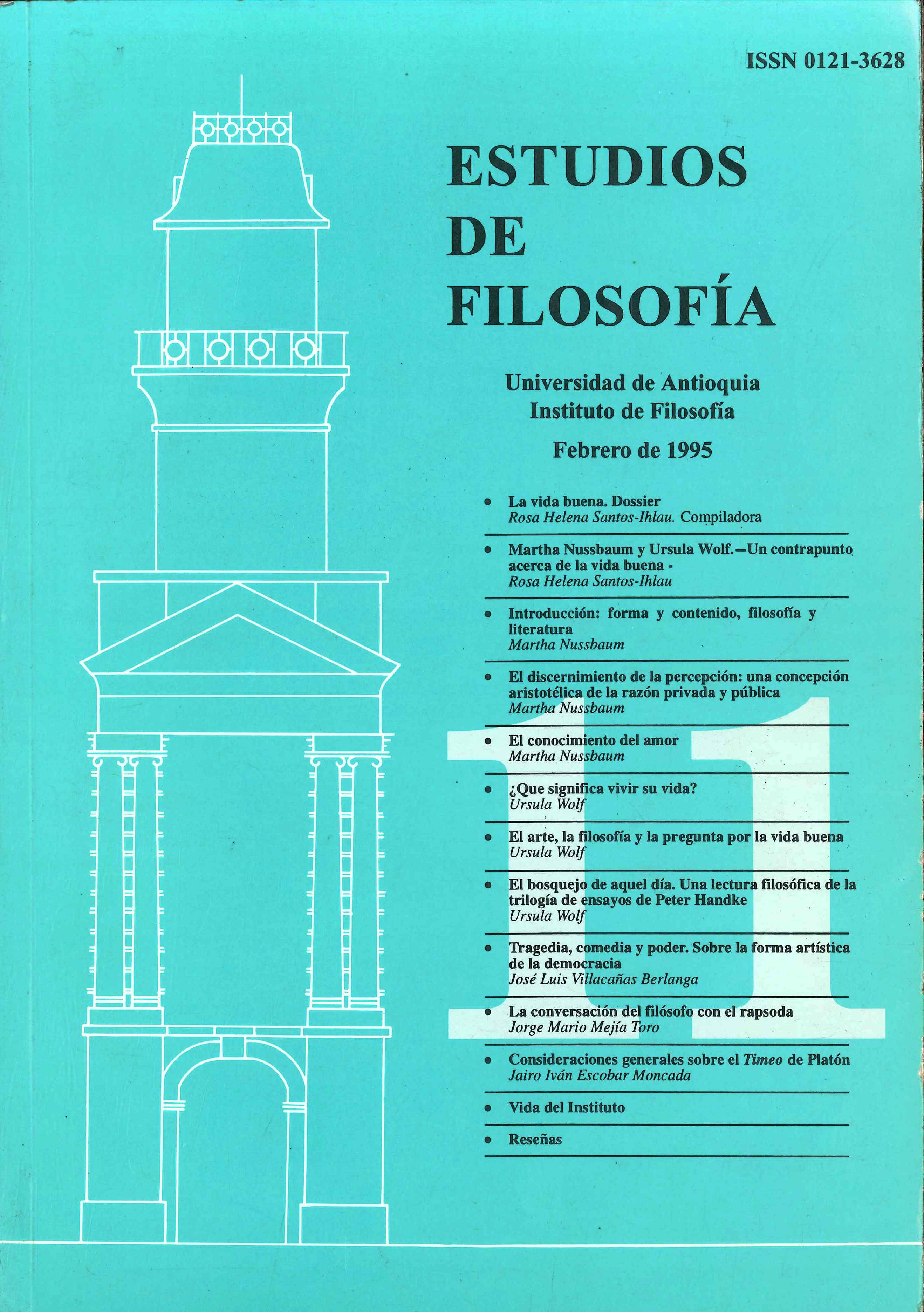¿Qué significa vivir su vida?
DOI:
https://doi.org/10.17533/udea.ef.338800Palabras clave:
filosofía, sentido de la vida, Parlit, WollheimResumen
En el marco de la discusión filosófica anglosajona, que ha tendido a evitar la pregunta por la constitución del ser humano debido a su carácter metafísico, surgen dos reflexiones acerca del significado de vivir la vida y sus implicaciones. Por un lado, la de Parfit en Reasons and Persons, y por otro, la de Richard Wollheim en The Thread of Life. El objetivo de este ensayo es establecer una reflexión crítica a propósito de ambos textos, cuyos planteamientos, no superan los alcances especulativos de la tradición filosófica existencial respecto de la pregunta por la vida y sus implicaciones. Pero en este texto no sólo se hace una lectura crítica de ambos ensayos sino que además se intenta mostrar tanto los límites de una reflexión meramente especulativa a la hora de afrontar la pregunta por la vida humana, que justifique su valor de verdad sin recurrir a una descripción de los fenómenos; como los de una reflexión que intente forzar los fenómenos a la luz de una teoría que se considera plausible. Este es el marco teórico desde el cual se esboza una concepción de la filosofía y de su papel como reflexión especulativa alrededor de la pregunta por la vida buena.
Descargas
Descargas
Publicado
Cómo citar
Número
Sección
Categorías
Licencia
Derechos de autor 1995 Ursula Wolf; Rosa Helena Santos-Ihlau

Esta obra está bajo una licencia internacional Creative Commons Atribución-NoComercial-CompartirIgual 4.0.
Los autores que publican en Estudios de Filosofía acuerdan los siguientes términos:
1. El Autor retiene el copyright del "Artículo", por el cual se entiende todos los objetos digitales que pueden resultar de la subsiguiente publicación o distribución electrónica.
2. En conformidad con los términos de este acuerdo, el autor garantizará a Estudios de Filosofía como Editor el derecho de la primera publicación del artículo.
3. El Autor le concederá al Editor un derecho perpetuo y no-exclusivo, así como una licencia de la misma clase, de publicar, archivar y hacer accesible el Artículo parcial o totalmente en todos los medios conocidos o por conocerse, derecho y licencia que se conocen como Creative Commons License Deed. Atribución-No Comercial- Compartir igual CC BY-NC-SA o su equivalente que para efectos de eliminar toda duda, le permite a otros copiar, distribuir, y transmitir el Artículo bajo las siguientes condiciones: (a) Atribución: Se deben reconocer los créditos de la obra de la manera especificada por el Autor a Estudios de Filosofía, pero no de una manera que sugiera que tiene su apoyo o que apoyan el uso que hace de su obra. (b) No Comercial: No se puede utilizar el Artículo para fines comerciales.
4. El Autor puede realizar otros acuerdos contractuales no comerciales para la distribución no exclusiva de la versión publicada del Artículo (v. gr. ponerlo en un repositorio institucional o publicarlo en un libro) con la condición de que haga el debido reconocimiento de su publicación original en Estudios de Filosofía.
5. A los Autores se les permite y Estudios de Filosofía promueve publicar en línea (online) la versión pre-impresa del Artículo en repositorios institucionales o en sus páginas web, antes y durante la publicación, por cuanto que puede producir intercambios académicos productivos, así como una mayor citación del Artículo publicado (ver The Effect of Open Access). Dicha publicación durante el proceso de producción y en la publicación del Artículo se espera que se actualice al momento de salir la versión final, incluyendo una referencia a la URL de Estudios de Filosofía.















